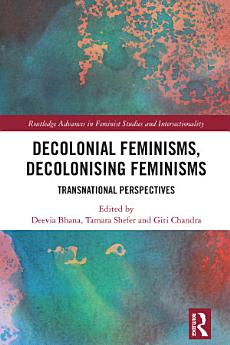Decolonial Feminisms, Decolonising Feminisms: Transnational Perspectives
About this ebook
The volume is organised into three thematic parts that critique traditional feminist frameworks, highlight innovative pedagogical methodologies, and showcase activism aimed at addressing intersectional inequalities. Each section features contributions from established scholars and emerging voices from both the Global North and the Global South, fostering interdisciplinary discussions that reflect a rich diversity of experiences. This approach not only enhances understanding of feminist thought but also promotes transformative practices that advocate for gender and social justice.
The book is targeted at scholars, students, and activists in feminist studies, postcolonial theory, and social justice and is a must-read for those looking to expand their understanding of feminist thought. Its emphasis on collaboration and solidarity makes it a valuable resource for anyone interested in addressing the complex global issues influenced by colonial histories while envisioning a more equitable future.
About the author
Deevia Bhana holds the South African Research Chair in Gender and Childhood Sexuality at the University of KwaZulu-Natal. Her interests lie in the area of gender and childhood sexualities, young masculinities, and sexual health education. Her latest authored book is Girls and the Negotiation of Porn in South Africa: Power, Play, and Sexuality (2023) and her most recent edited book is Gender and Young People’s Digital Sexual Cultures (2025).
Tamara Shefer is Professor of Women’s and Gender Studies in the Faculty of Arts and Humanities at the University of the Western Cape, Cape Town. Her scholarship has been directed at intersectional gender and sexual justice, particularly with young people, and re-conceptualising academic knowledge, with an emphasis on post-qualitative, feminist, decolonial pedagogies and research. Her most recent authored book is A Feminist Critique of Sexuality Education for Gender Justice in South African Contexts (with S. Ngabaza, 2023), and her most recent edited book is Routledge Handbook of Global Feminisms and Gender Studies: Convergences, Divergences and Pluralities (with Torres, Pinto, and Hearn, 2025).
Giti Chandra is currently Research Specialist with the Gender Equality Studies and Training Programme (under the auspices of UNESCO) in Reykjavik. She is the author of Narrating Violence, Constructing Collective Identities: To Witness These Wrongs Unspeakable (2009) and co-editor of The Routledge Handbook on the Politics of the #MeToo Movement (2021).






